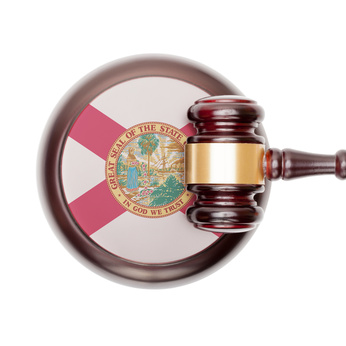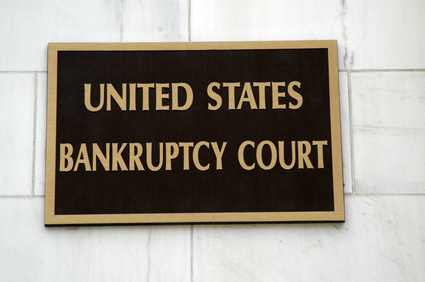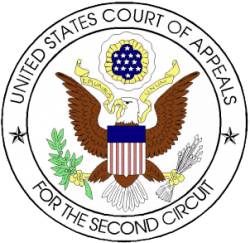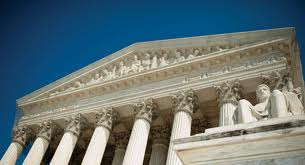The District Court of Appeal of Florida, Second District, recently reversed a trial court’s order vacating a voluntary dismissal based on mistaken advice from counsel regarding the statute of limitations, holding that the voluntary dismissal was the result of a deliberate judgment by counsel, and not the type of non-judgmental, clerical mistake that Florida law recognizes as a basis to undo a voluntary dismissal. A copy of the opinion in Cottrell v. Taylor, Bean & Whitaker Mortgage Corp. is available at: Link to Opinion. In March 2013, borrowers created a land trust, naming their attorney as trustee. They then transferred to the…
Posts published in January 2016
A recent decision from a United States Bankruptcy Court in the Northern District of Illinois provides a detailed analysis of why proofs of claim on “time-barred” debt do not violate the federal Fair Debt Collection Practices Act (FDCPA) or the Bankruptcy Code. The decision, Glenn v. Cavalry Investments, LLC, is among the growing number of decisions rejecting Crawford v. LVNV from the Eleventh Circuit Court of Appeals. A copy of the opinion is available at: Link to Opinion. The debtor, Darryl Glenn, voluntarily commenced a chapter 13 bankruptcy in August 2014. The creditor, Cavalry Investments, filed a timely proof of…
The Consumer Financial Protection Bureau issued a bulletin on Nov. 23, 2015 “intended to remind entities of their obligations under the Electronic Fund Transfer Act (EFTA) and Regulation E.” A careful read is needed, as Bulletin 2015-06 can be easily misinterpreted. A copy is available at: Link to Bulletin 2015-06. Electronic transfers become subject to the EFTA and Regulation E when they are made from a consumer’s “account.” Credit cards will typically not cause a transfer from a consumer’s account, but debit cards would cause a transfer from a consumer’s account. Much of the bulletin’s focus is directed at the…
The U.S. District Court for the Middle District of Florida recently dismissed allegations that a debt buyer violated the federal Fair Debt Collection Practices Act by filing a proof of claim on time-barred debt, holding that such claims are precluded by the Bankruptcy Code, and that the FDCPA does not provide a private right of action against debt collectors who file time-barred proofs of claim in bankruptcy court. A copy of the opinion in Castellanos v. Midland Funding LLC is available at: Link to Opinion. The plaintiff individual owed a credit card debt and filed for bankruptcy protection under Chapter 13 of…
The U.S. Court of Appeals for the Second Circuit recently held that a debtor in bankruptcy can pursue claims under the federal Fair Debt Collection Practices Act in district court for trying to collect a discharged debt, reversing a judgment dismissing the FDCPA claims and requiring the plaintiff seek relief in bankruptcy court. A copy of the opinion in Garfield v. Ocwen Loan Servicing, LLC is available at: Link to Opinion. The debtor defaulted on her mortgage loan and filed for Chapter 13 bankruptcy, agreeing in her reorganization plan to pay the arrearage on her mortgage in monthly payments. The debtor received…
The U.S. Court of Appeals for the Sixth Circuit recently rejected a borrower’s “robo-signing” challenge to his foreclosure. In so ruling, the Court also held that a Michigan state court’s issuance of a preliminary injunction against a mortgagee in a foreclosure action did not bar subsequent removal and entry of summary judgment in favor of the mortgagee by a federal district court. A copy of the opinion in Burniac v. Wells Fargo Bank, NA is available at: Link to Opinion. The borrower obtained a mortgage loan, and the mortgage was later assigned. The new mortgagee continued to send the borrower his monthly…
The Supreme Court of the United States recently held that a class action defendant cannot “pick off” the named plaintiff and thereby render the case moot by simply offering full relief by way of settlement offer or offer of judgment under Federal Rule of Civil Procedure 68. However, as the majority acknowledges, the Court also left open the question of what happens when a defendant actually tenders full relief to the named plaintiff, thus potentially leaving class action defendants an alternative weapon to cost-effectively defeat class claims. A copy of the opinion in Campbell-Ewald Co. v. Gomez is available at: Link…
The U.S. District Court for the Northern District of Illinois recently held that the automatic stay in bankruptcy does not, by itself, operate to revoke prior express consent under the federal Telephone Consumer Protection Act (TCPA). However, the Court also held that, in this particular case, the debtor had sufficiently alleged that she had not given consent to the creditor or debt collector defendants in the first place, and thus allowed the debtor’s individual and putative class TCPA claims to go forward. In addition, the Court rejected the debtor’s attempt to bring TCPA class claims for injunctive and declaratory relief,…
The Third District Court of Appeal, State of Florida, recently reversed a trial court’s dismissal of foreclosure proceedings due to a ruling that a lost note was not properly re-established, holding that the trial court should have entered judgment for the plaintiff mortgagee because the plaintiff mortgagee met the statutory requirements for re-establishing the lost note, and because the trial court admitted business records without objection into evidence showing the note was in default. A copy of the opinion in Nationstar Mortgage, LLC v. Marquez, et al. is available at: Link to Opinion. The borrower signed a note and mortgage in…
The U.S. Court of Appeals for the Fifth Circuit recently held that section 506(c) of the Bankruptcy Code, 11 U.S.C. § 506(c), permits a trustee to recover from a secured creditor the expenses the trustee incurred while maintaining a property during bankruptcy. A copy of the opinion in In re Domistyle, Inc. is available at: Link to Opinion. The debtor in this case was placed into receivership in April 2013. The receiver initiated Chapter 11 proceedings on the belief that the debtor had enough equity to reorganize. One of the debtor’s most valuable assets was an industrial building situated on 17 acres…
The District Court of Appeal of the State of Florida, Fourth District, recently reversed a final judgment in favor of a borrower based on an alleged oral modification of the mortgage and the doctrine of promissory estoppel, holding that because the mortgage fell within the statute of frauds, it could not be orally modified, and that the trial court misapplied the doctrine of promissory estoppel. A copy of the opinion in Ocwen Loan Servicing, LLC v. Jean Marie Delvar a/k/a Jean Delvar, et al. is available at: Link to Opinion. A mortgagee sued to foreclose in April 2008. The borrower’s answer raised…
The U.S. District Court for the Southern District of New York recently dismissed a putative class action alleging violations of the federal Telephone Consumer Protection Act (TCPA) against a marketing company that conducted a mass text message advertising campaign on behalf of a national retail clothing store. In so ruling, the Court held that: (1) the plaintiffs failed to adequately plead that the marketing company is directly liable under the TCPA as the party who “made” the subject text messages; and (2) the plaintiffs failed to adequately plead any agency relationship between the marketing company and the company that actually…












